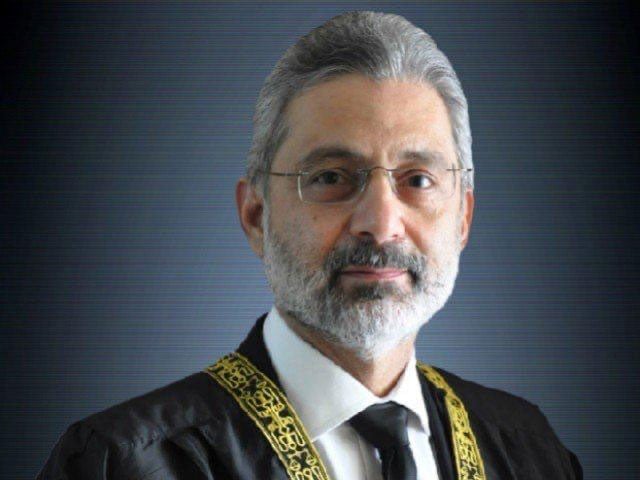ISLAMABAD:Justice Qazi Faez Isa moved swiftly on Sunday to begin the judicial business in the new era, forming the full court on the high-profile Supreme Court Practice and Procedure Act case, and bringing in the country’s first ever female registrar.
Immediately after the swearing-in of Chief Justice Isa, the apex court issued roster for the full court. It said all the 15 judges of the apex court, led by the Chief justice himself, would hear the Practice and Procedure Act case on Monday (today).
The full court comprises, Justice Sardar Tariq Masood, Justice Ijazul Ahsan, Justice Mansoor Ali Shah, Justice Muneeb Akhtar, Justice Yahya Afridi, Justice Aminuddin Khan, Justice Mazahar Ali Akbar Naqvi, Justice Jamal Khan Mandukhel, Justice Muhammad Ali Mazhar, Justice Ayesha Malik, Justice Athar Minallah, Justice Hasan Azhar Rizvi, Justice Shahid Waheed and Justice Musrat Hilali.
In April, an eight-member larger bench, headed by then chief justice Umar Ata Bandial had suspended the Practice and Procedure Act, even before its enactment. Since then, some apex court judges have been saying that the case should be decided at the earliest, because of wide-ranging impact.
The Supreme Court Practice and Procedure Act has several objectives, including granting the authority to take suo motu notices and form apex court benches to a three-member committee, consisting of senior judges, including the chief justice. Currently, it is the sole authority of the chief justice.
The bill was passed by the National Assembly on March 29 and by the Senate on March 30. After which it was sent to President Dr Arif Alvi for his assent. However, Alvi refused to approve the bill and on April 8, he sent it back to parliament for reconsideration.
A joint session of parliament approved the bill as it was on April 10 and sent it back to the president for his approval. As per the law, any bill sent to the president for a second time would be enacted after 10 days even if the president did not sign it into law.
However, on April 13 – a week before its automatic enactment on April 20 — the Supreme Court stayed the enactment of the law. In the meanwhile, the National Assembly issued the notification of the bill becoming the law in the Gazette of Pakistan.
During the hearing of a case recently, Justice Mansoor Ali Shah had stressed the need for a decision in the Practice and Procedure Act case at the earliest, saying that if the court declared the act valid, then all the judgments given under suo motu jurisdiction might lose their significance.
According to legal experts, the case, after taking rounds of parliament, the Presidency and the Courtroom No 1, has now been placed before the entire Supreme Court, adding that the judgment in the case could impact the accountability law amendment case, the Supreme Court Review of Judgment and Orders case.
This is for the first time in over eight years that a full court has been formed. Previously, the full court was formed in 2015 on the 21st Constitutional Amendment case, which was meant to establish military courts for speedy trial of terrorists.
However, during these years, demands were made many a time for forming of the full court to hear political cases and the cases against parliamentary legalisation. However, the requests were declined as the concept of like-minded benches prevailed.
The legal experts also suggest that Chief Justice Qazi Faiz Isa had showed his seriousness about unifying the judiciary by forming the full court, as soon as he took oath of office. They added that now, all the judges would determine the fate of this legislation.


No comment